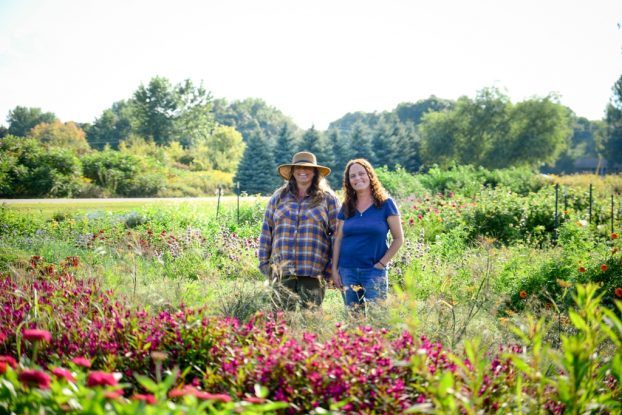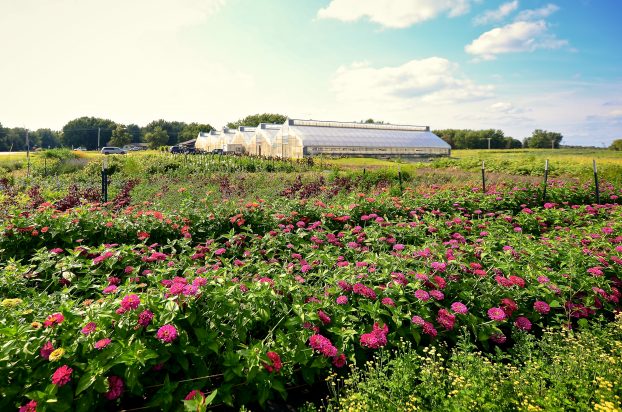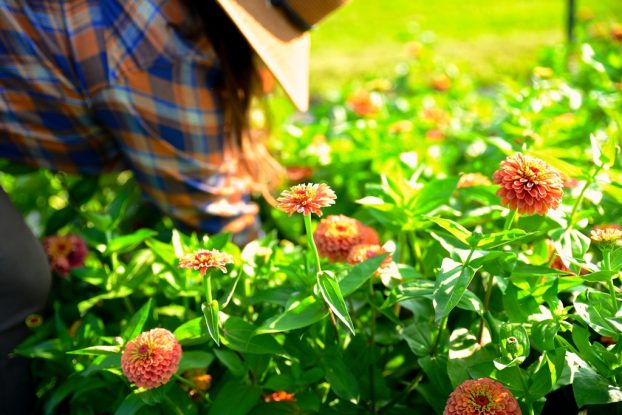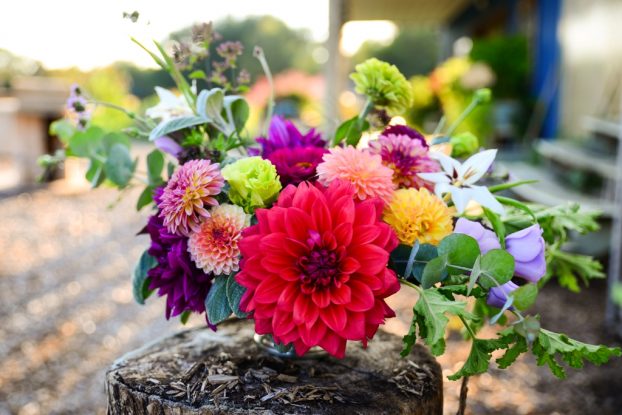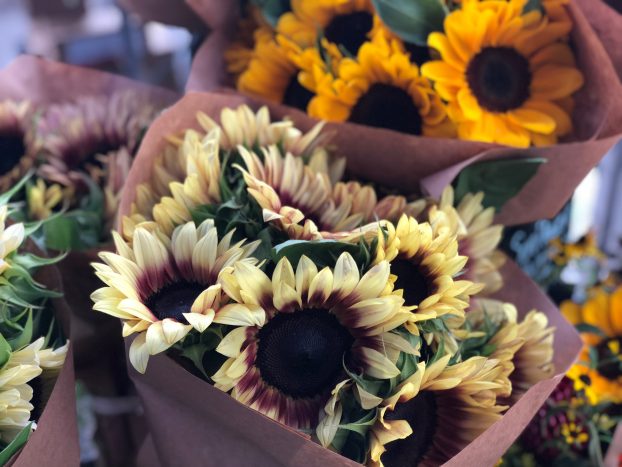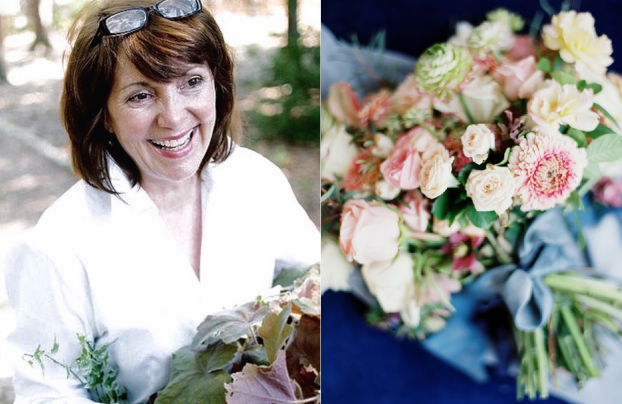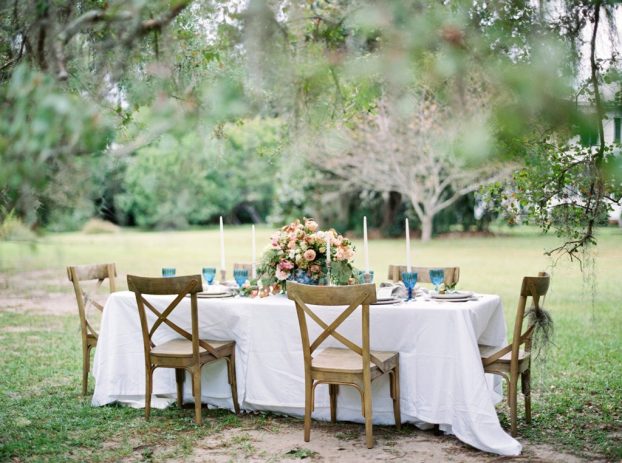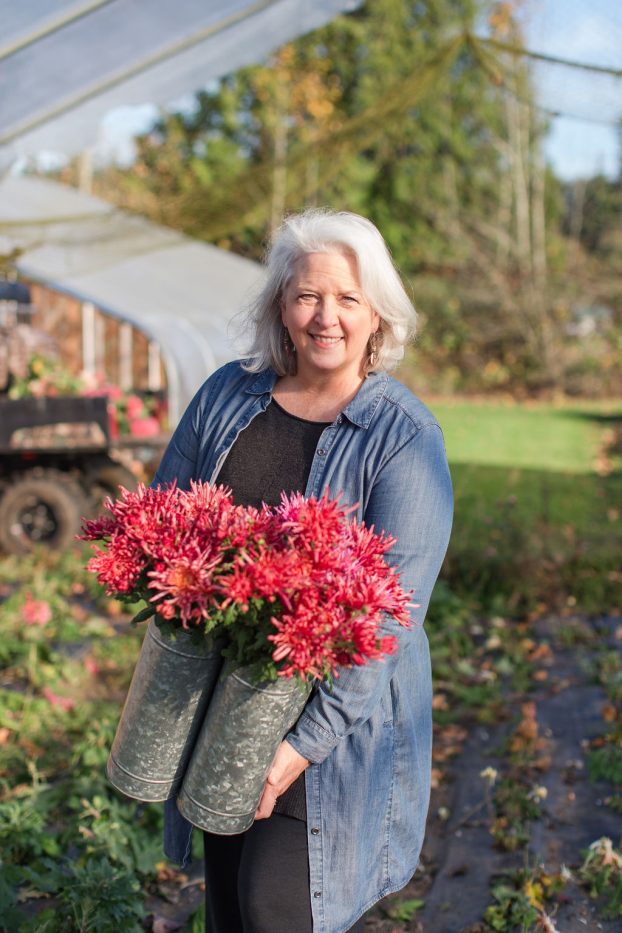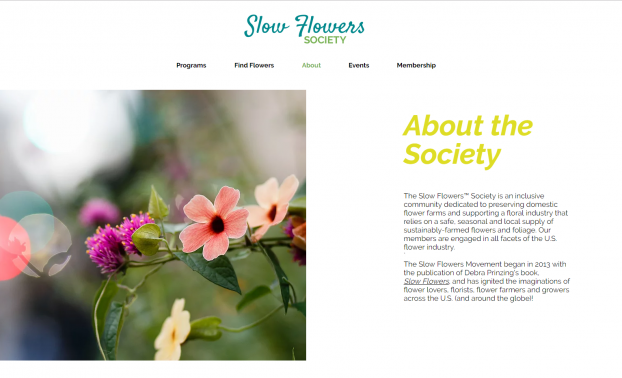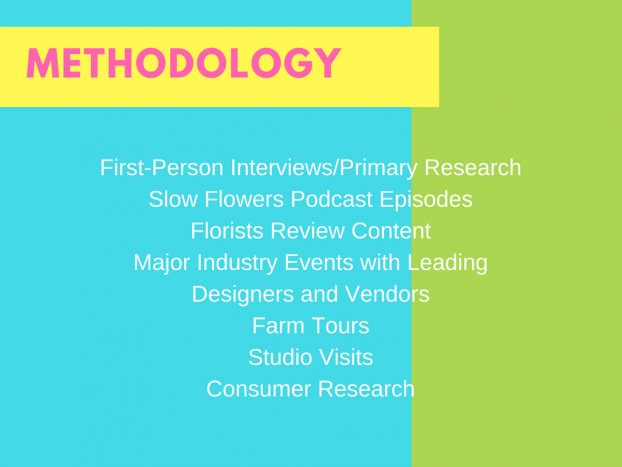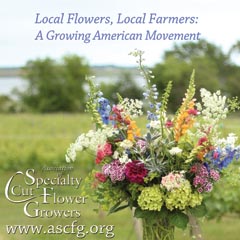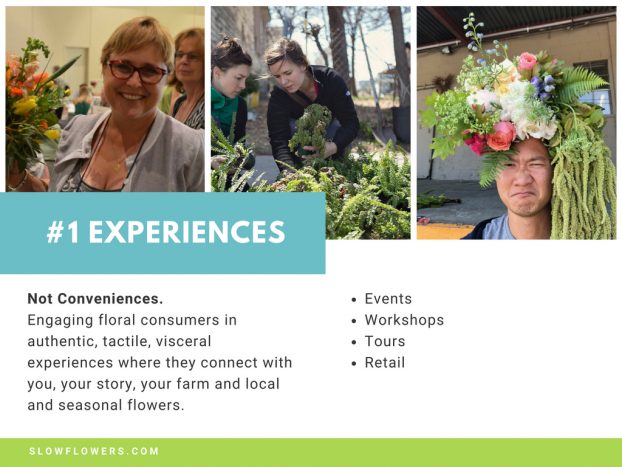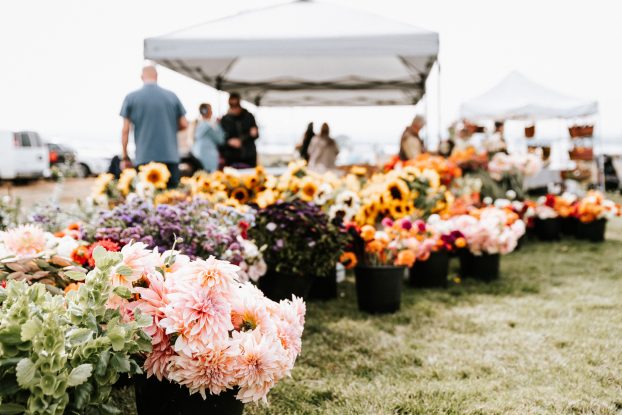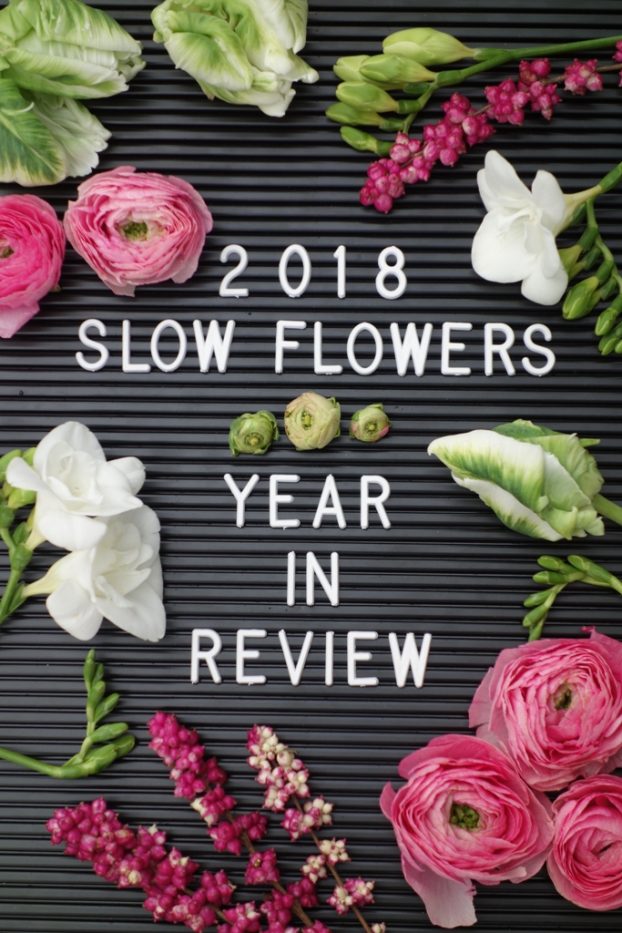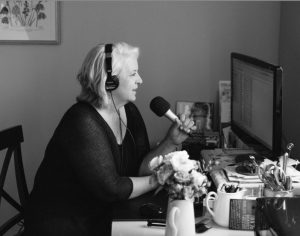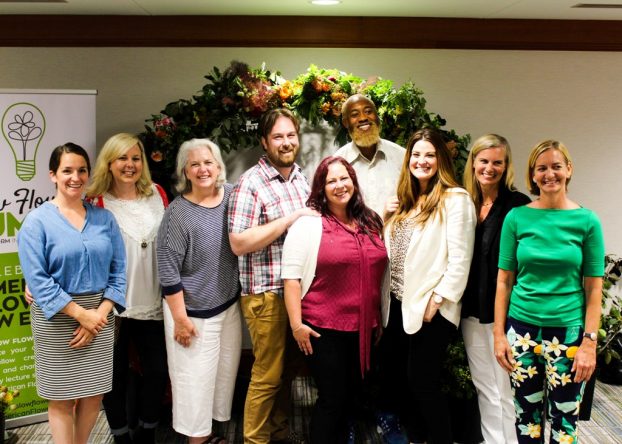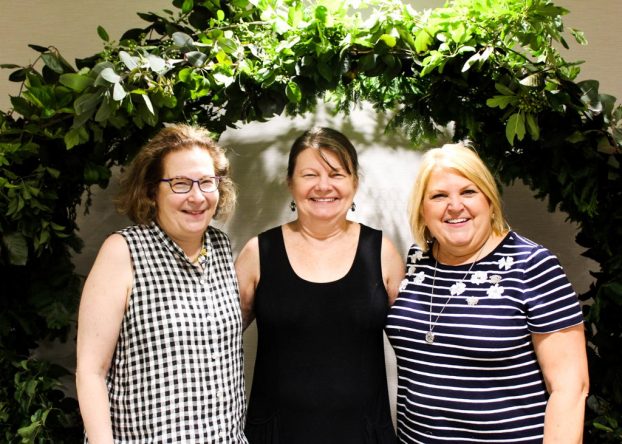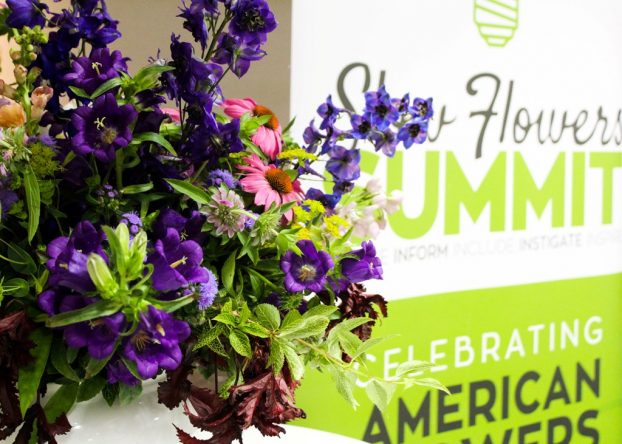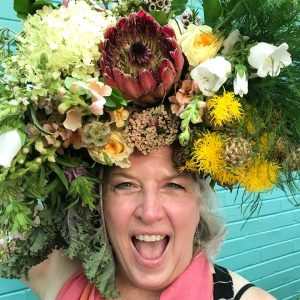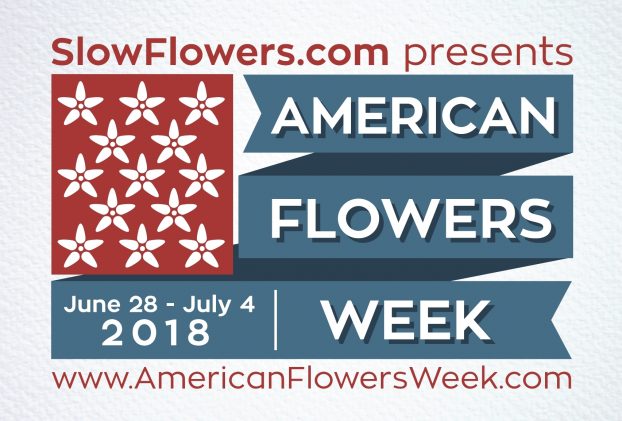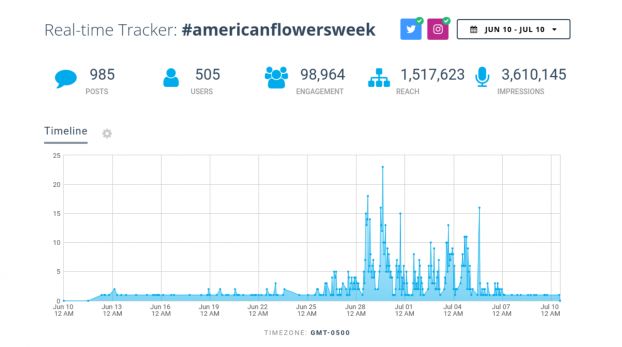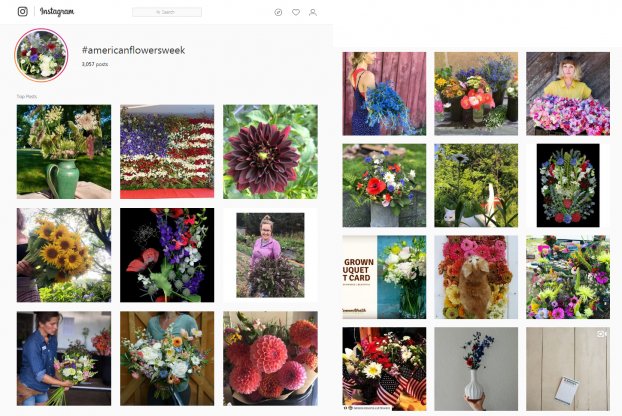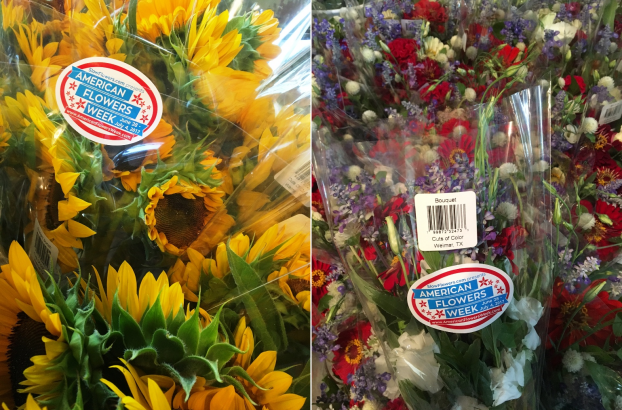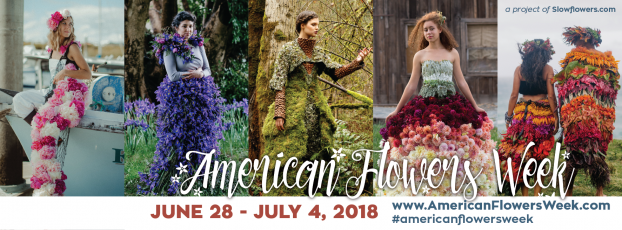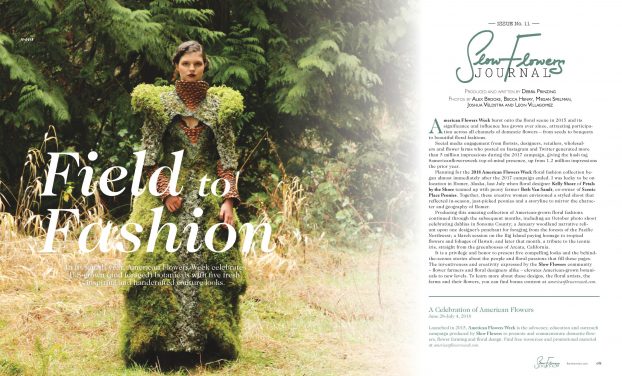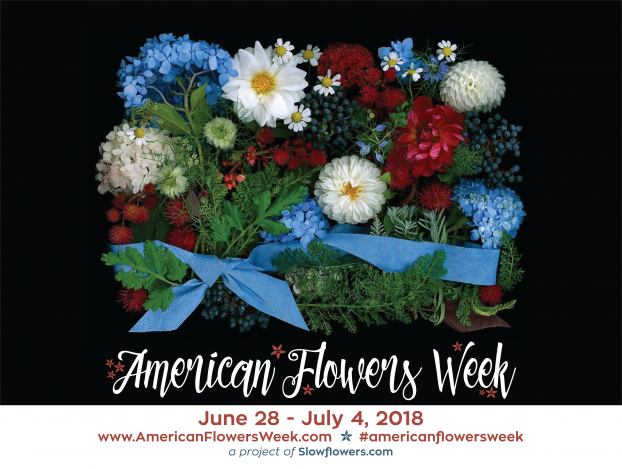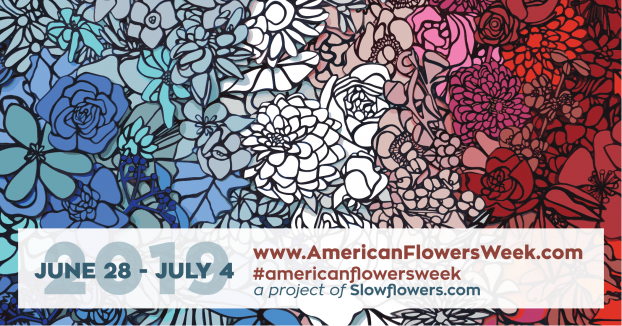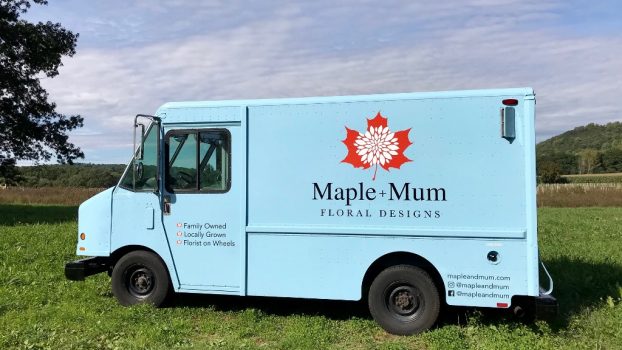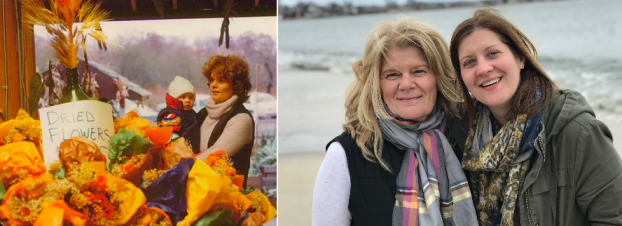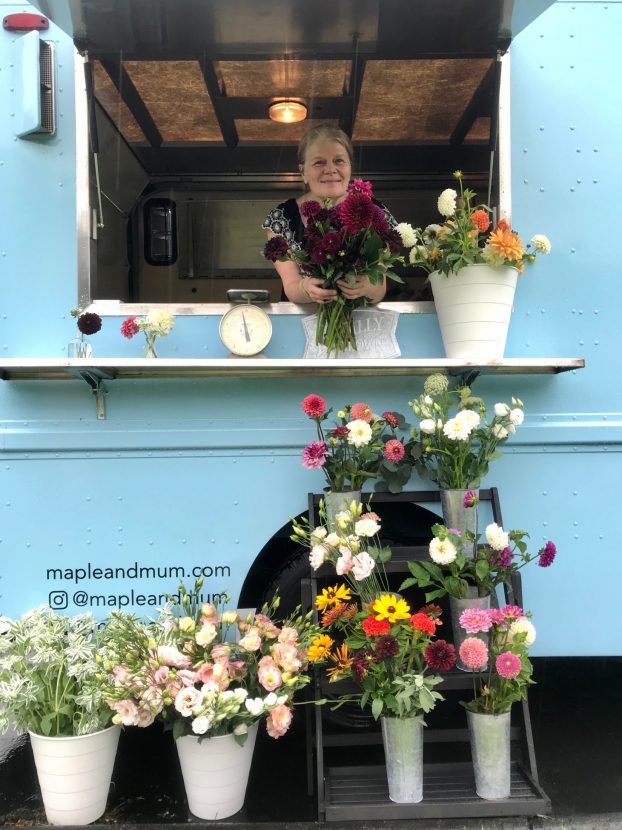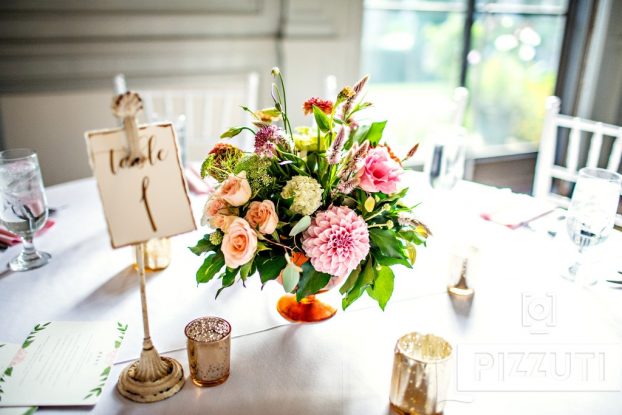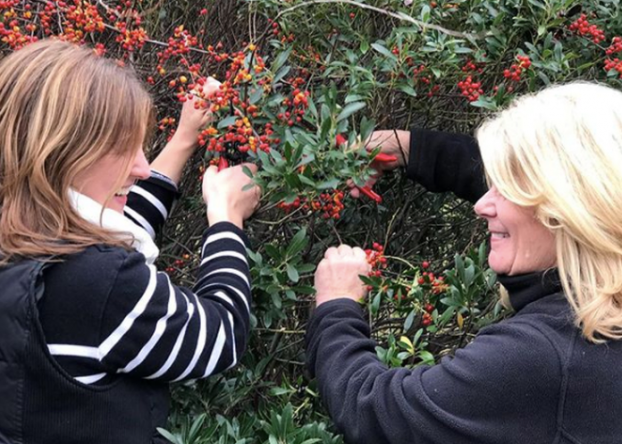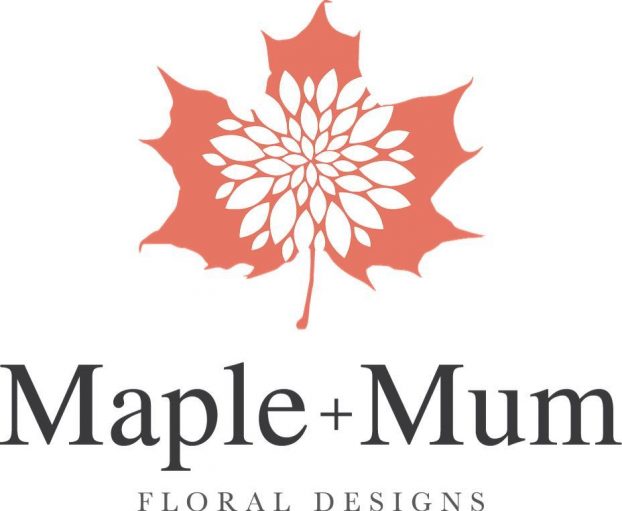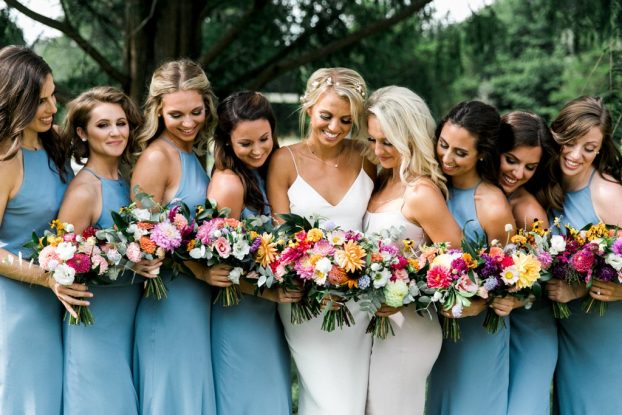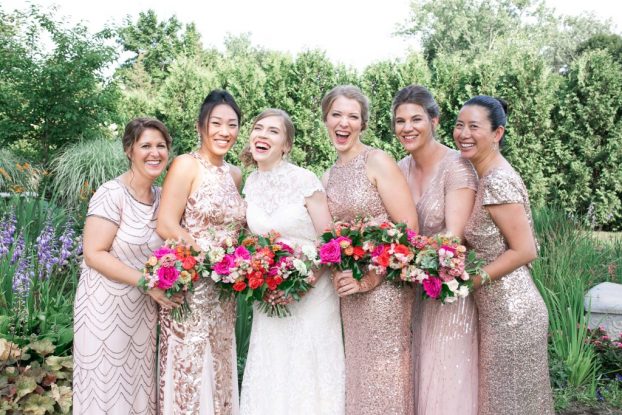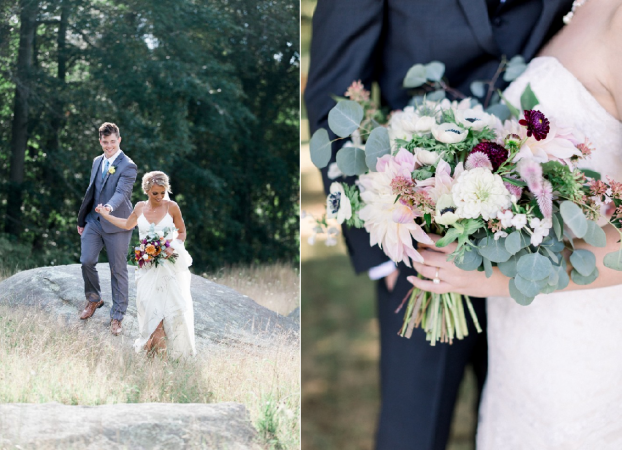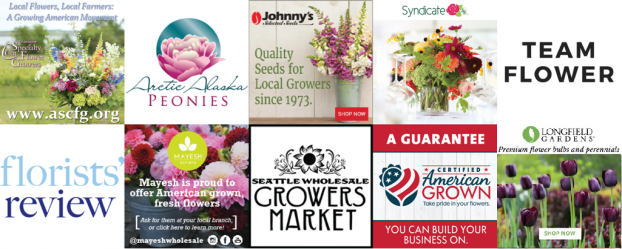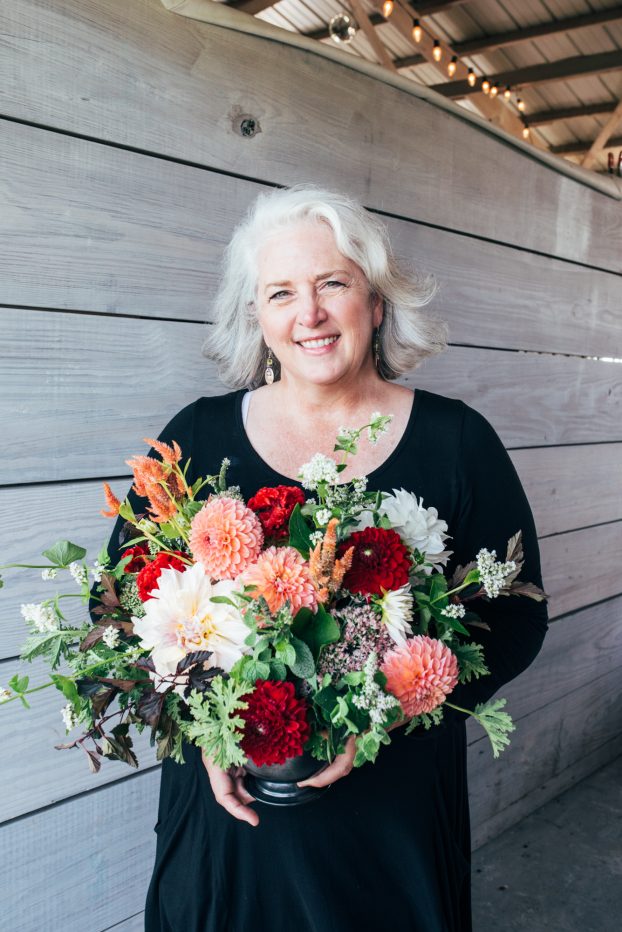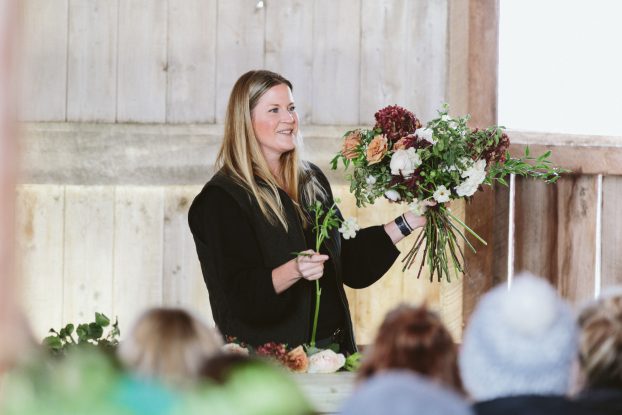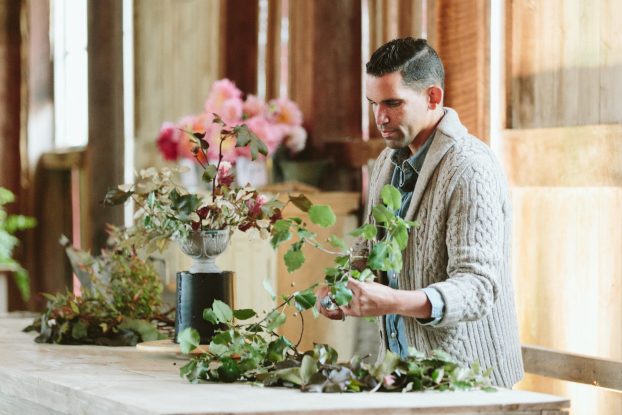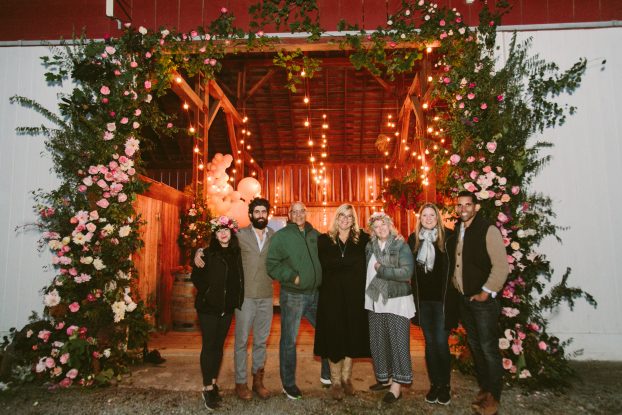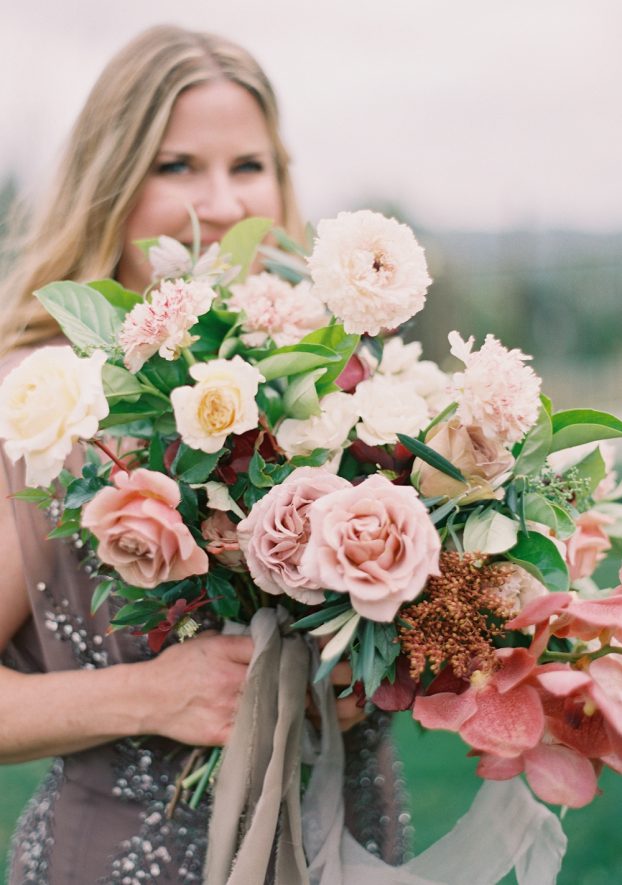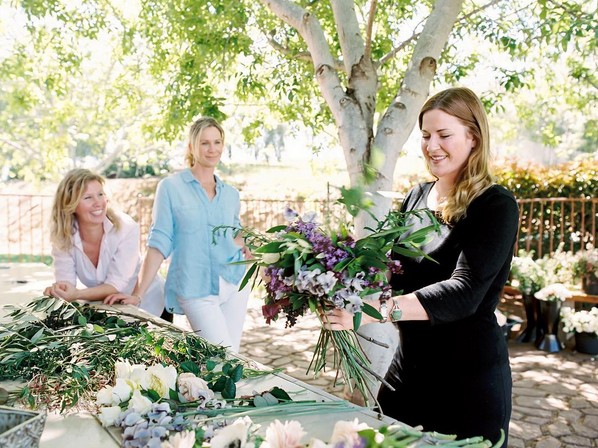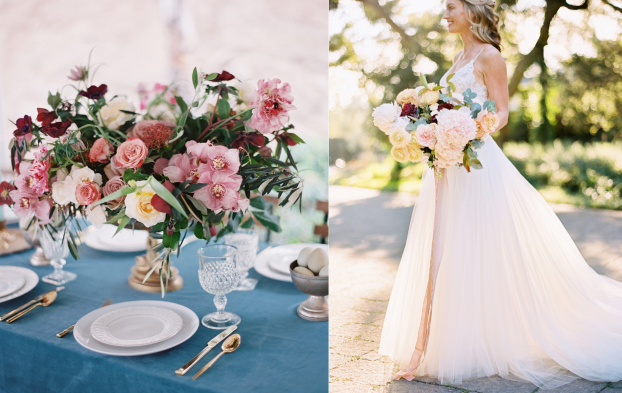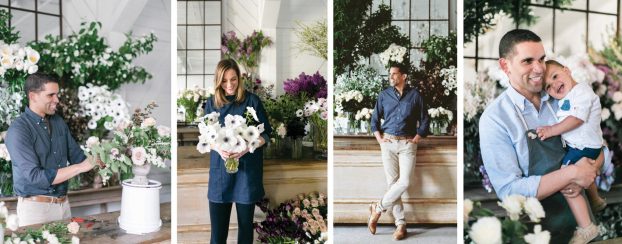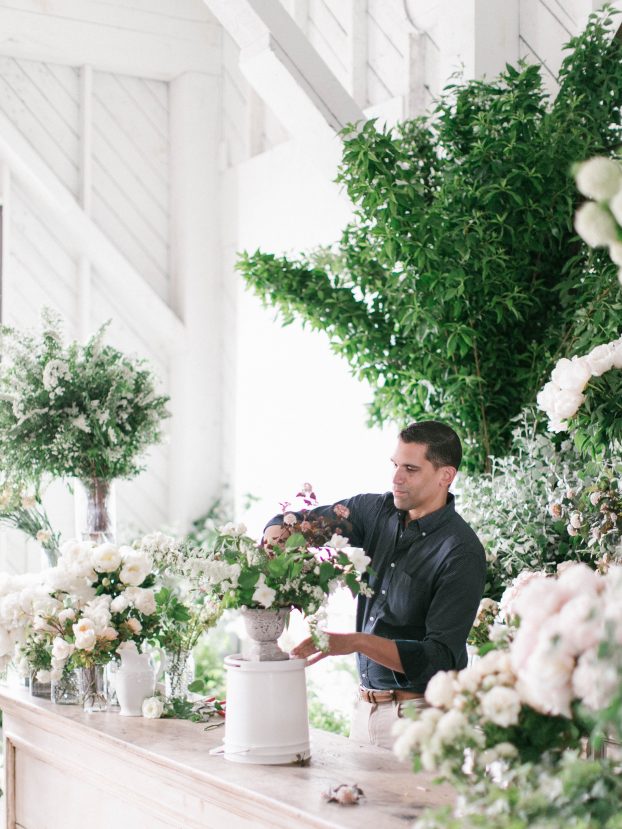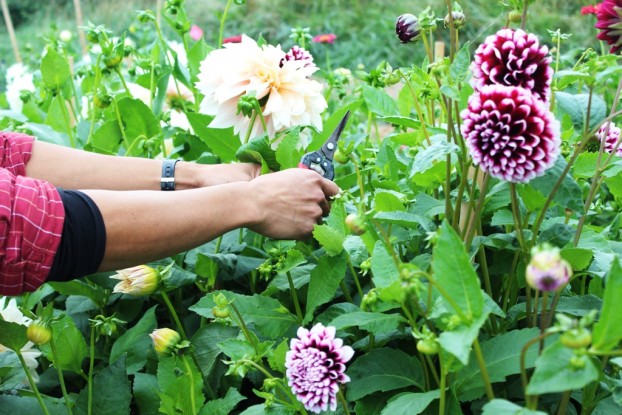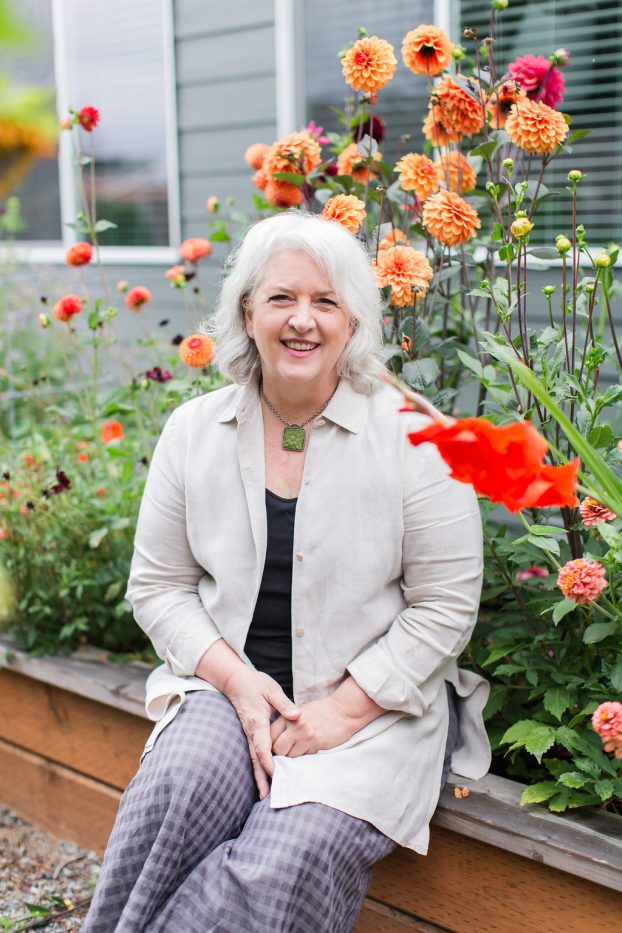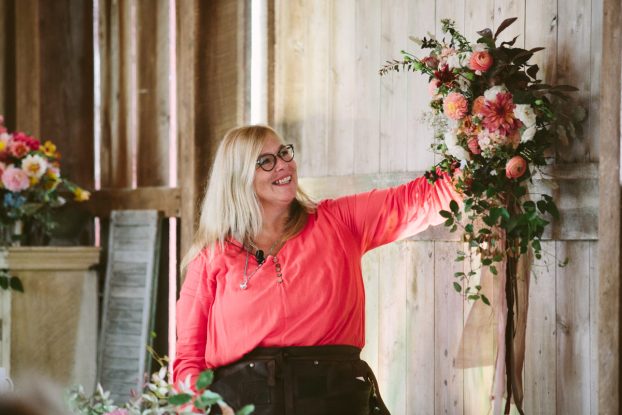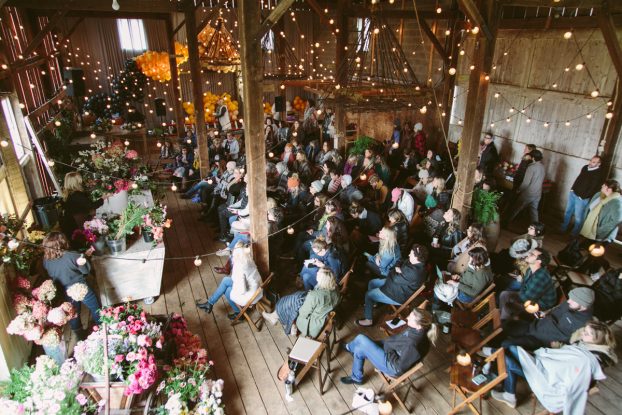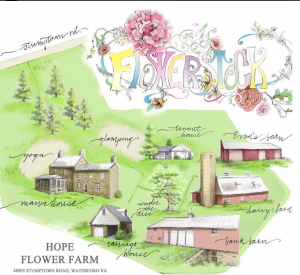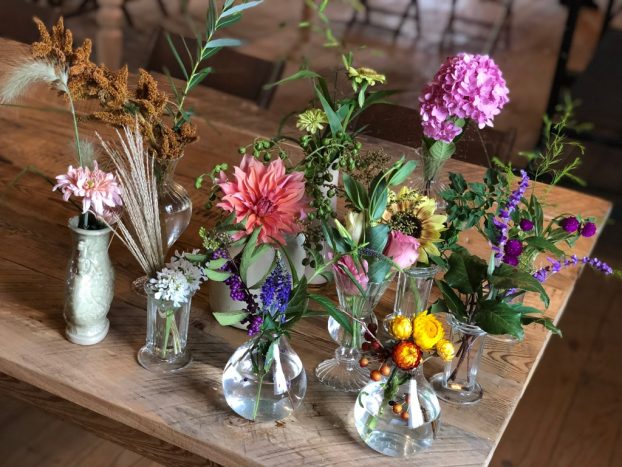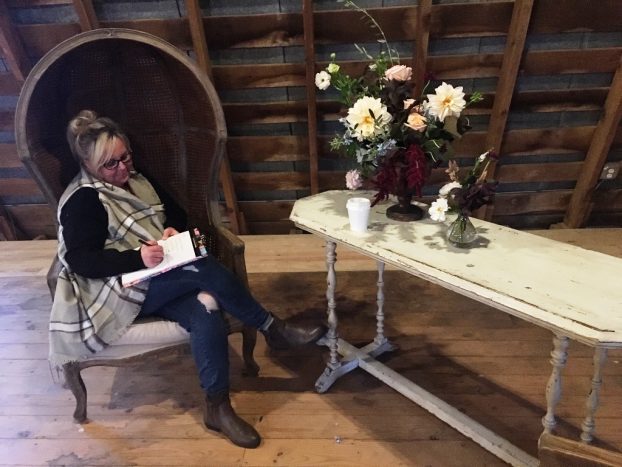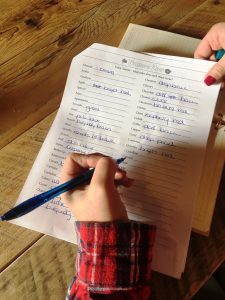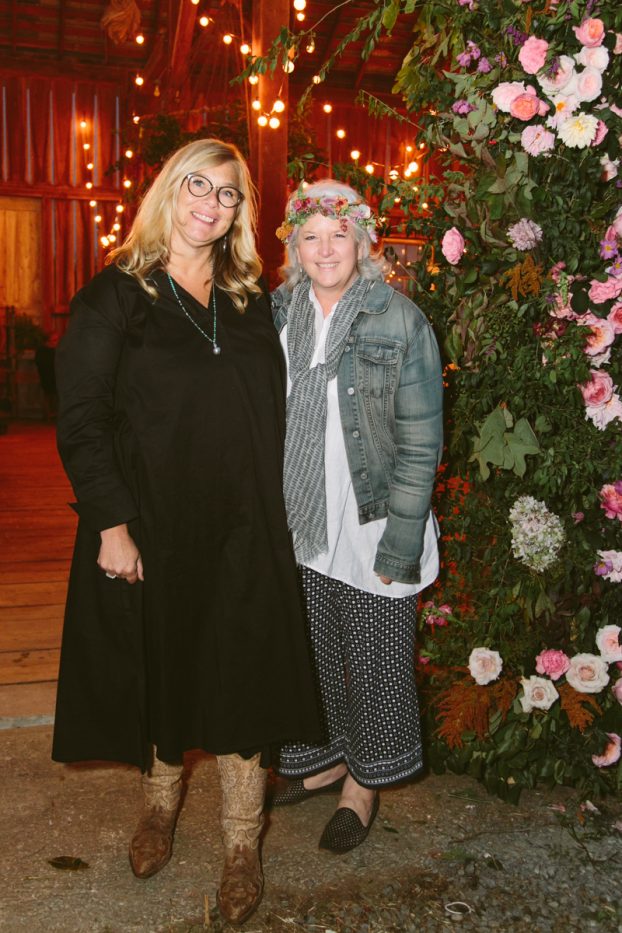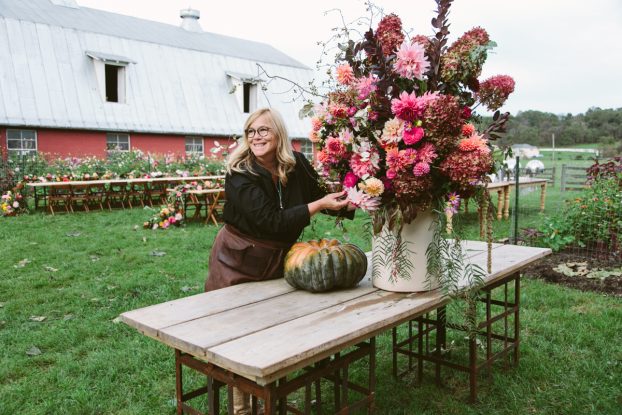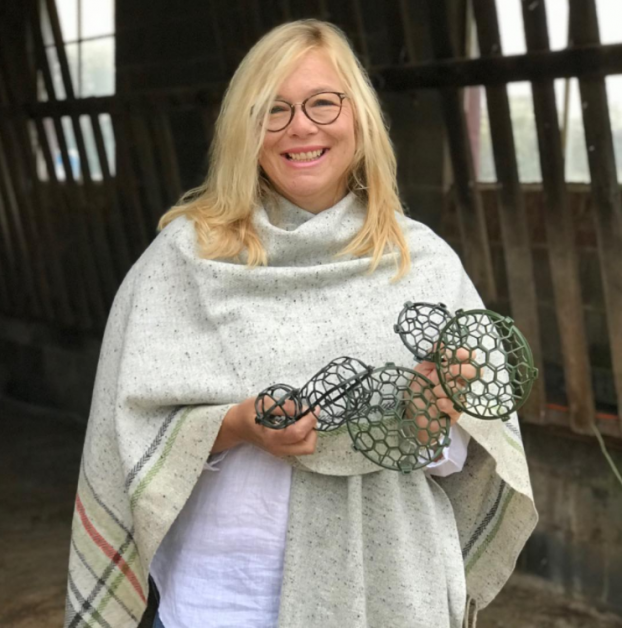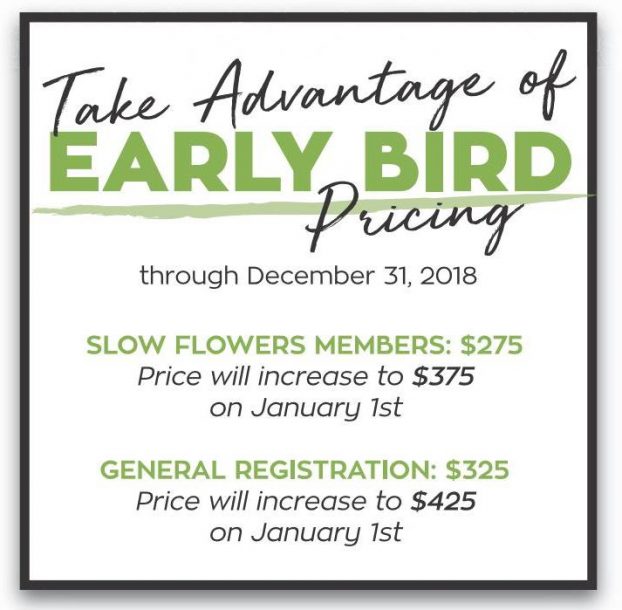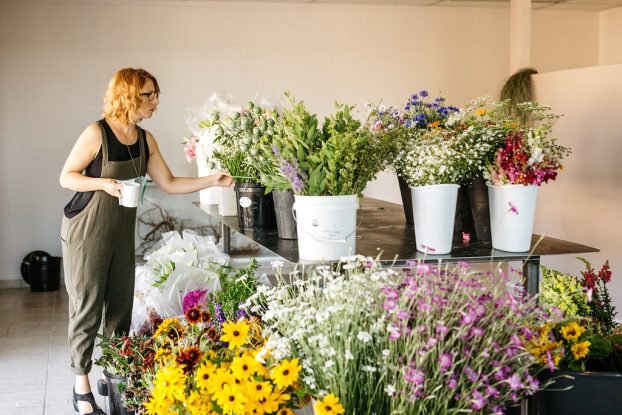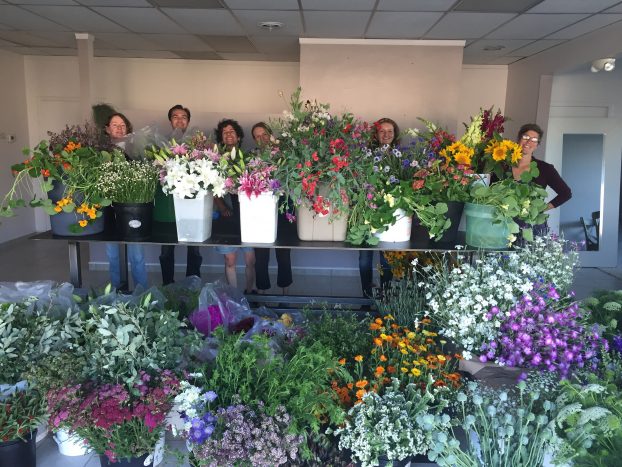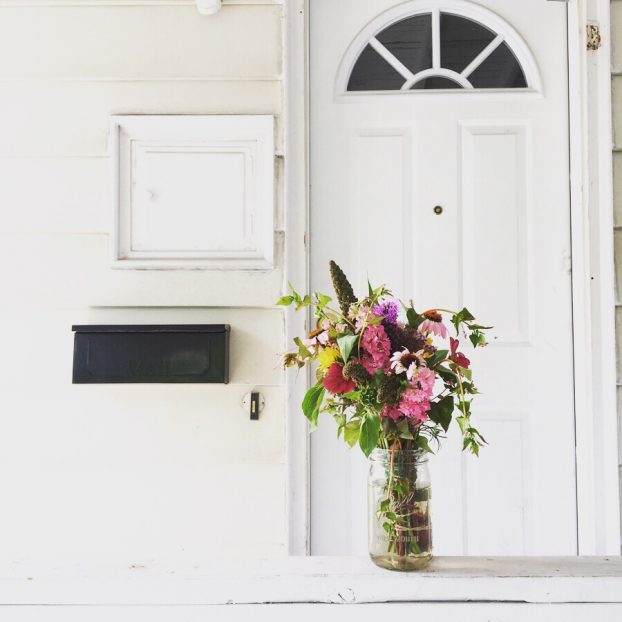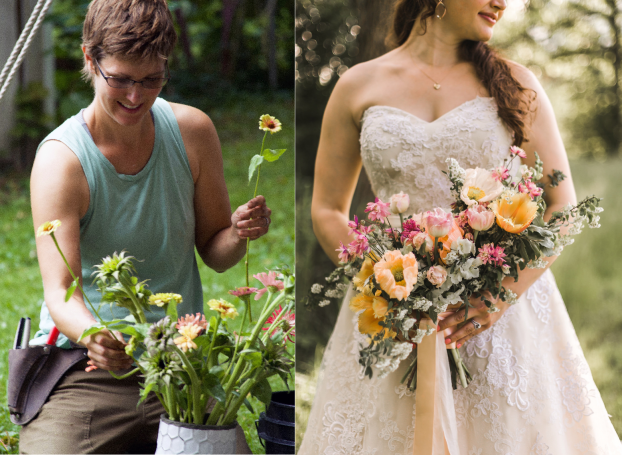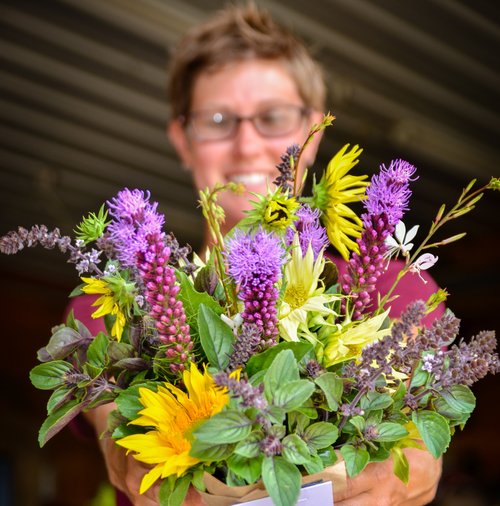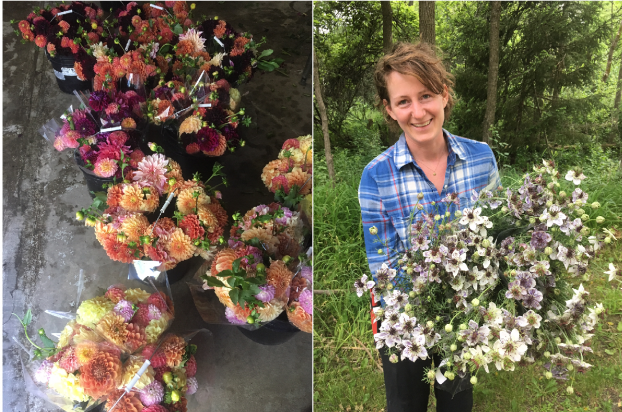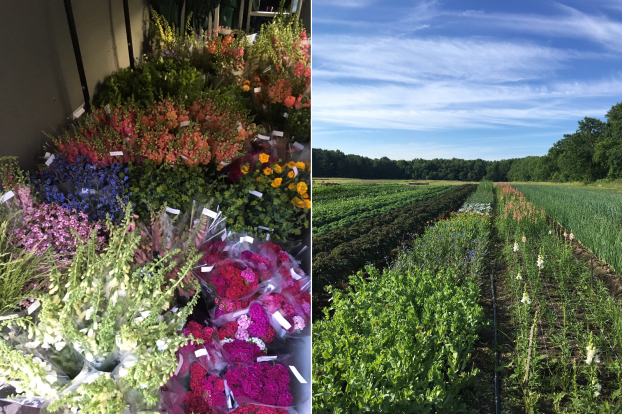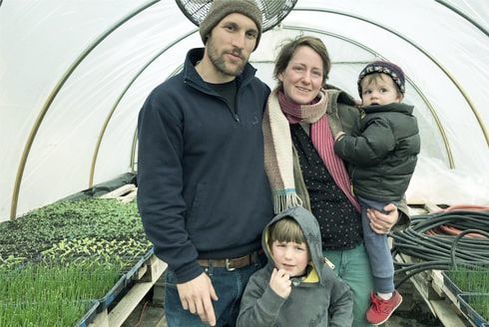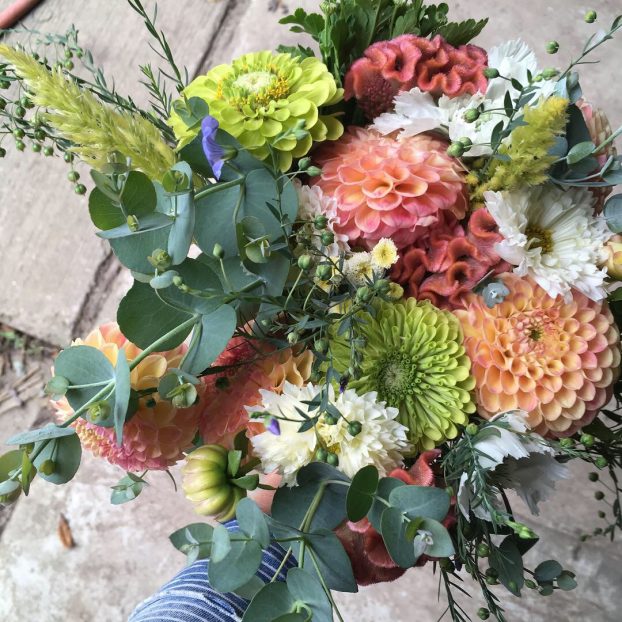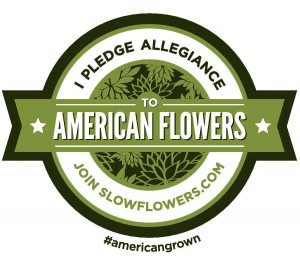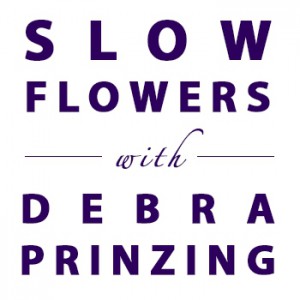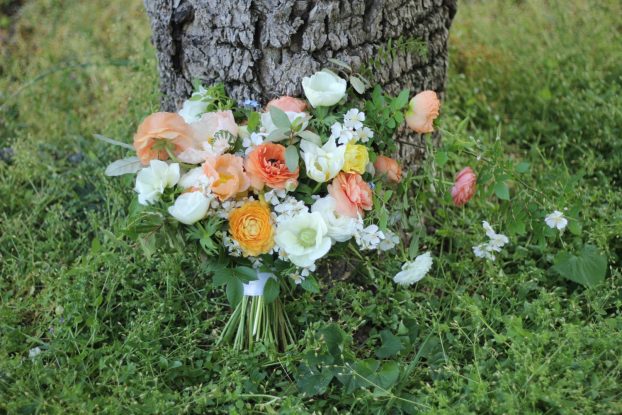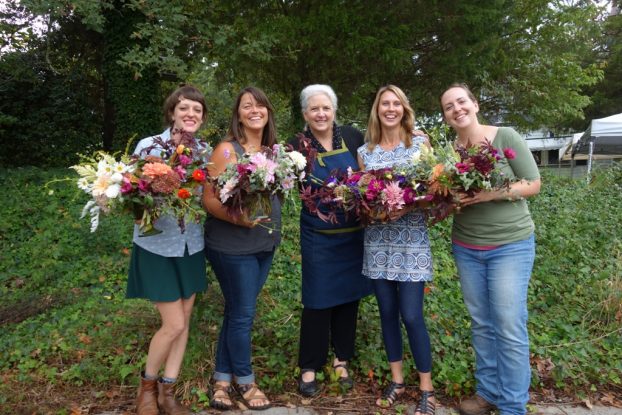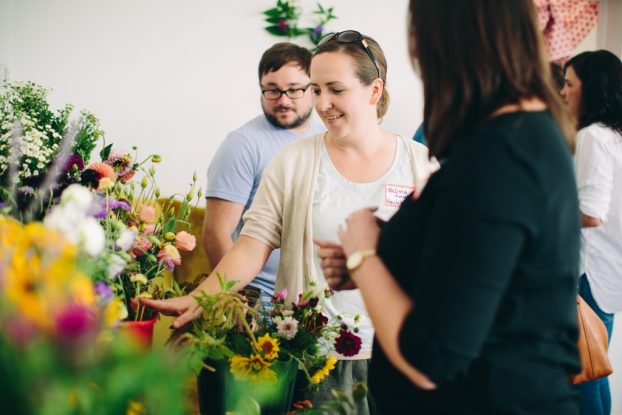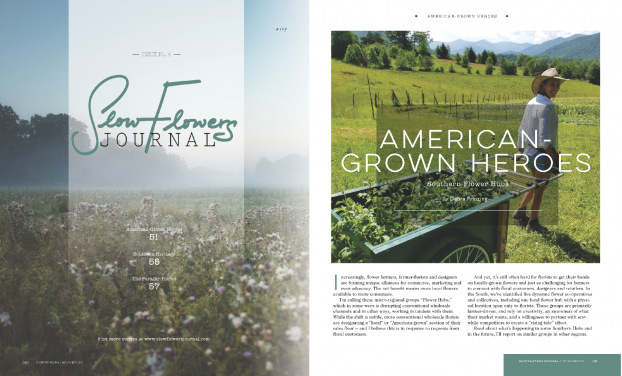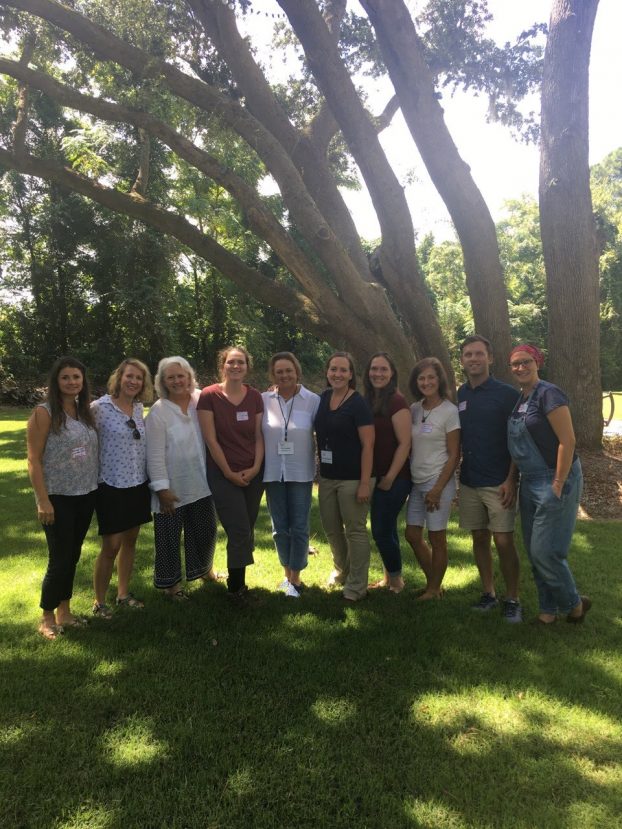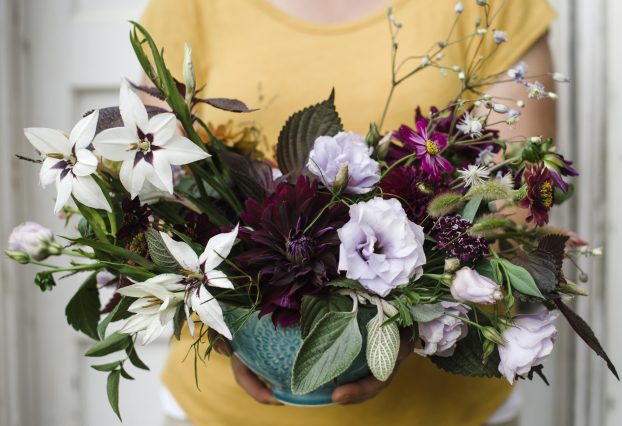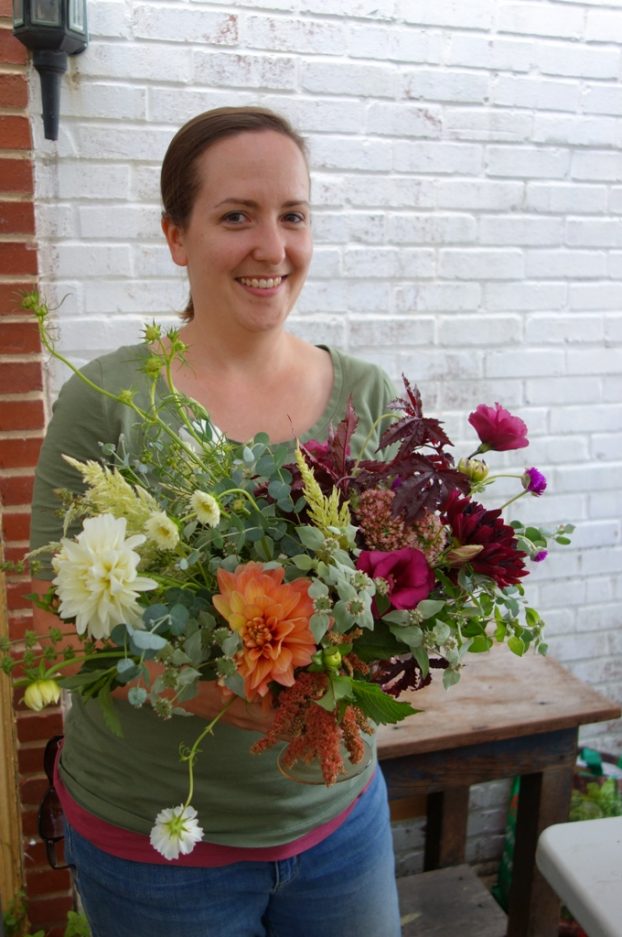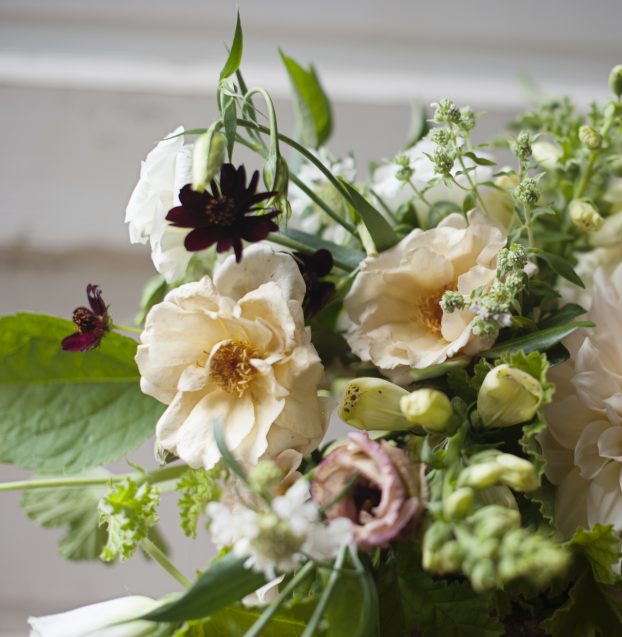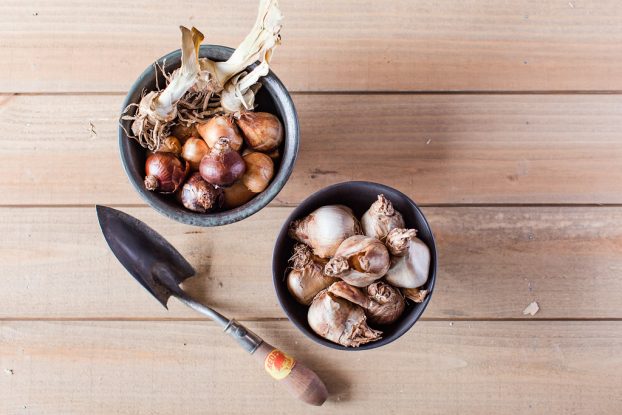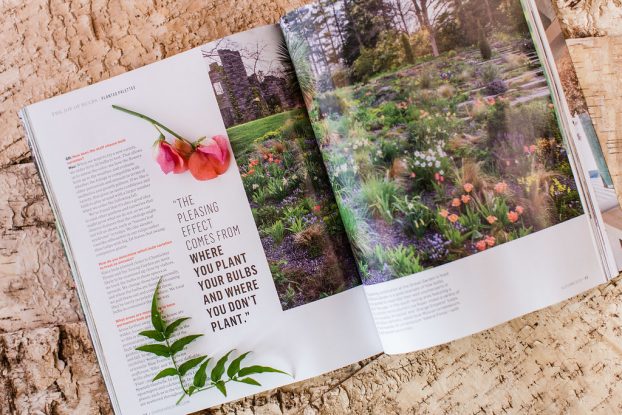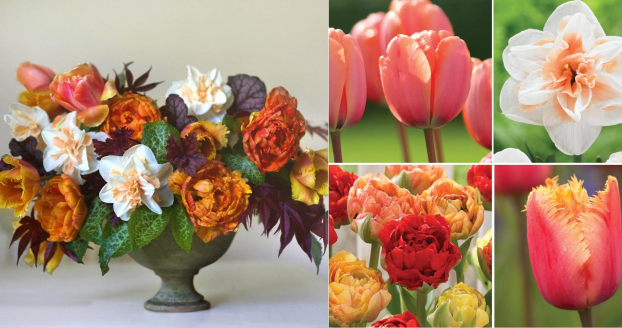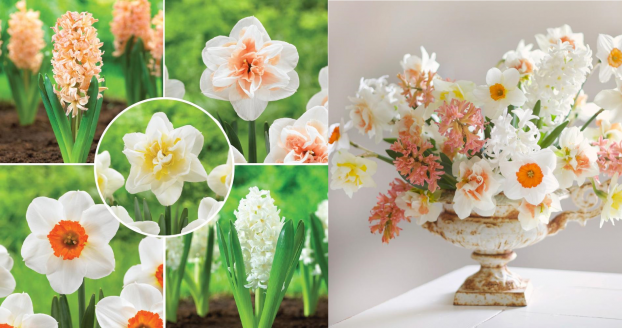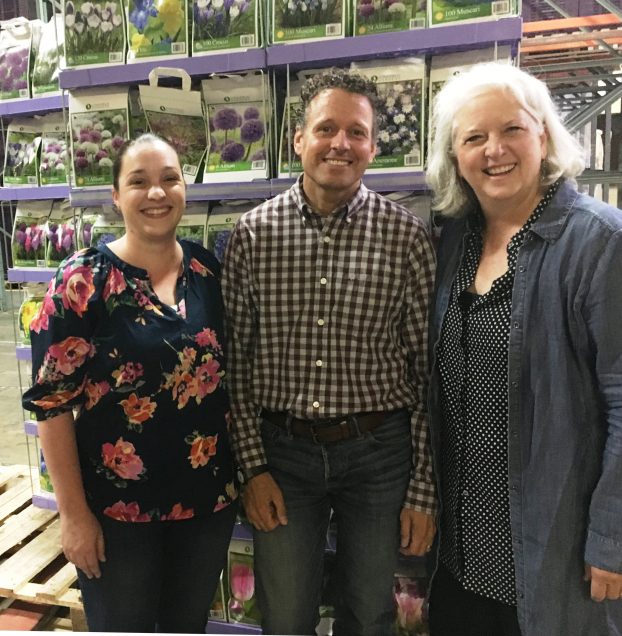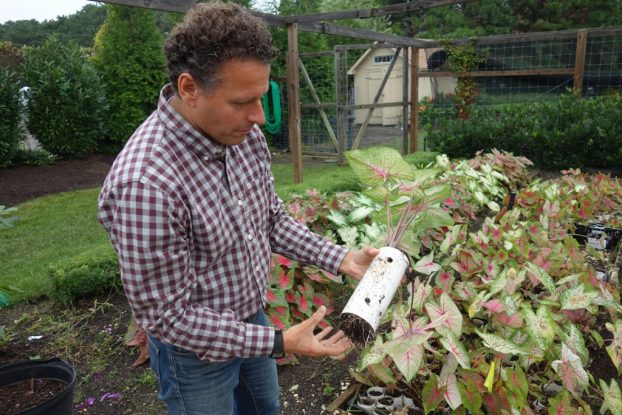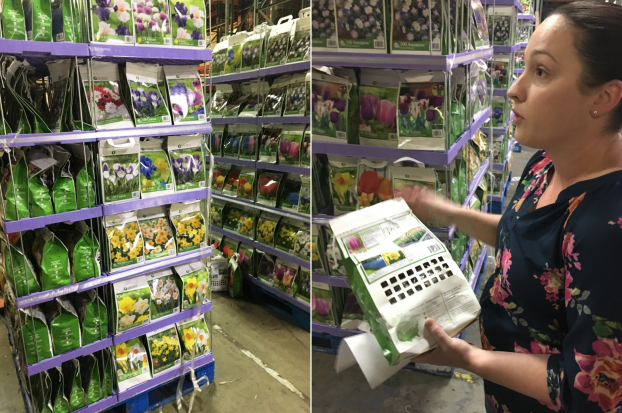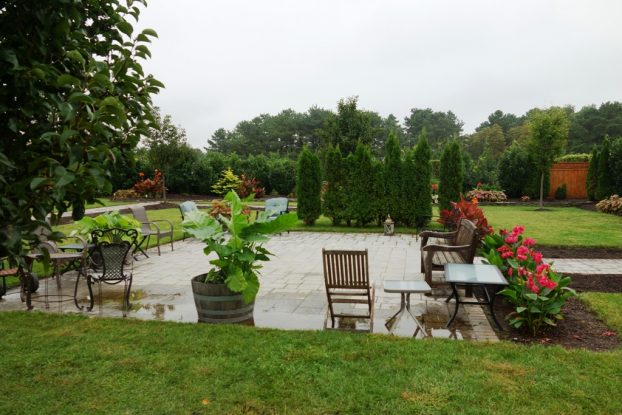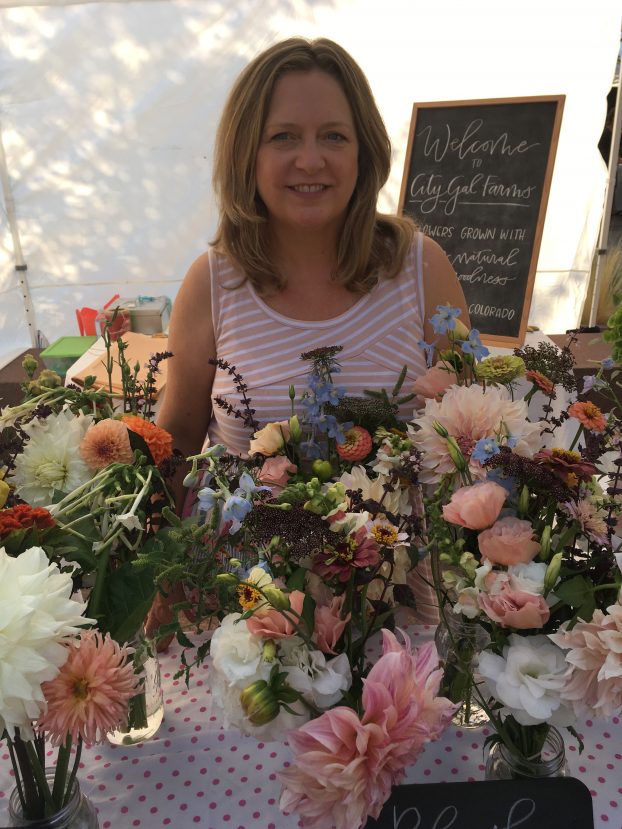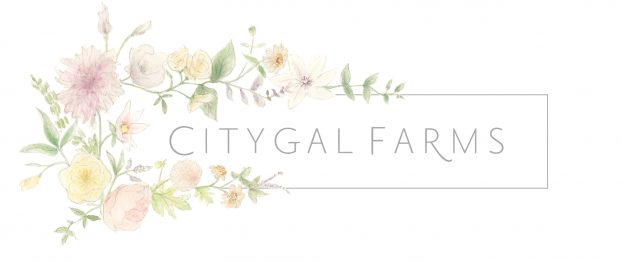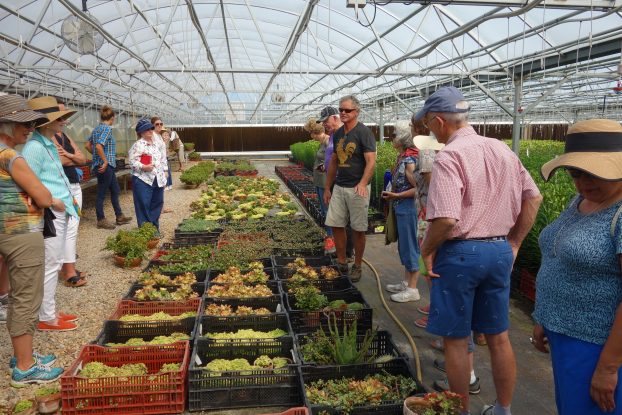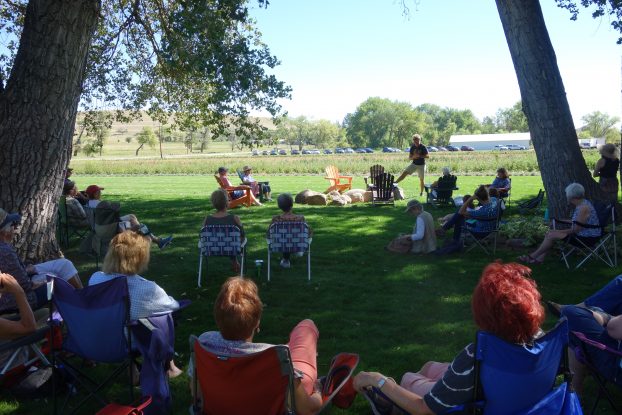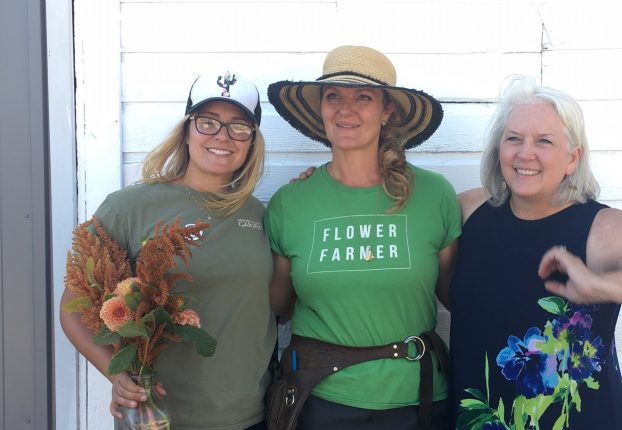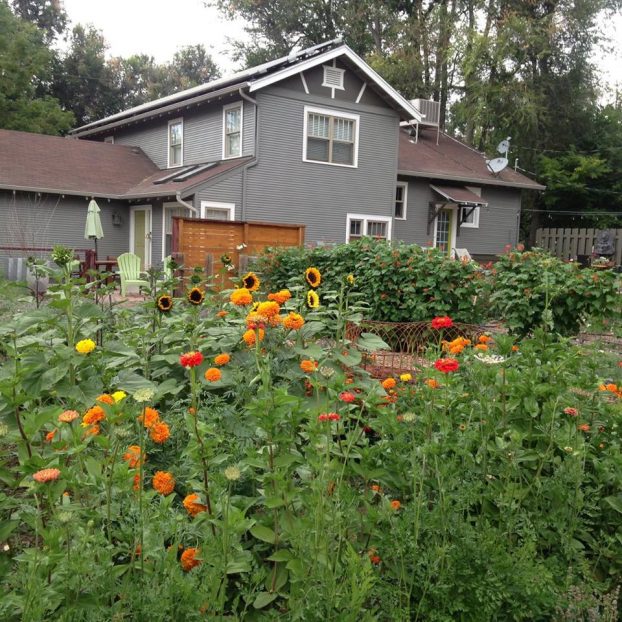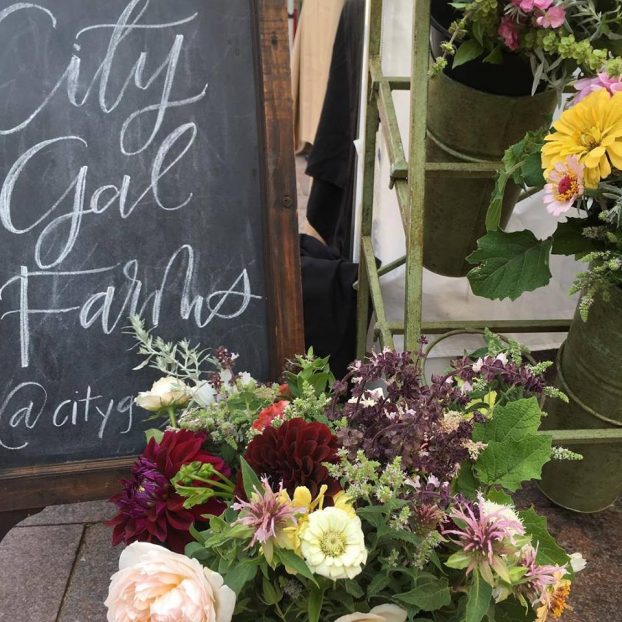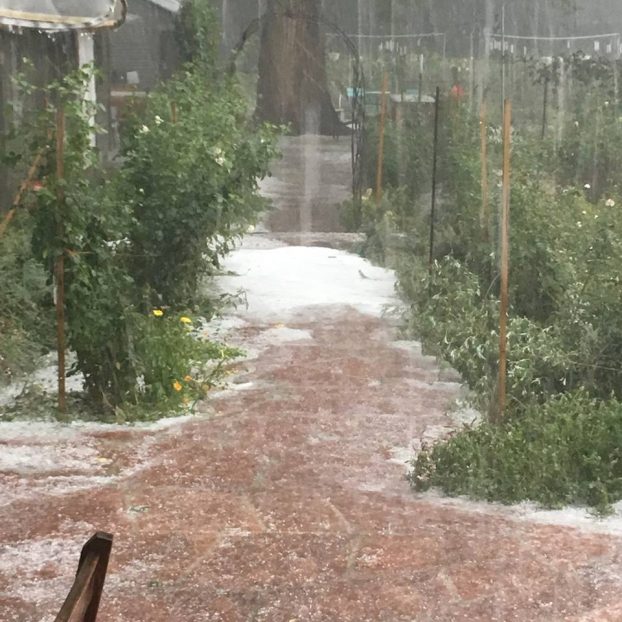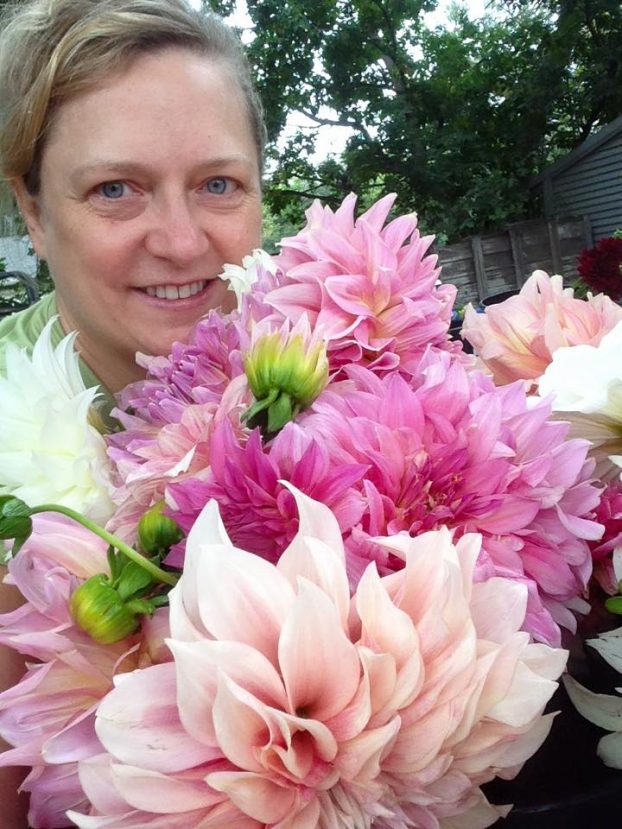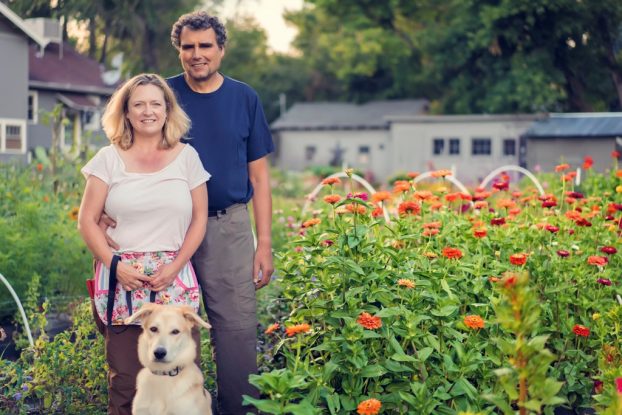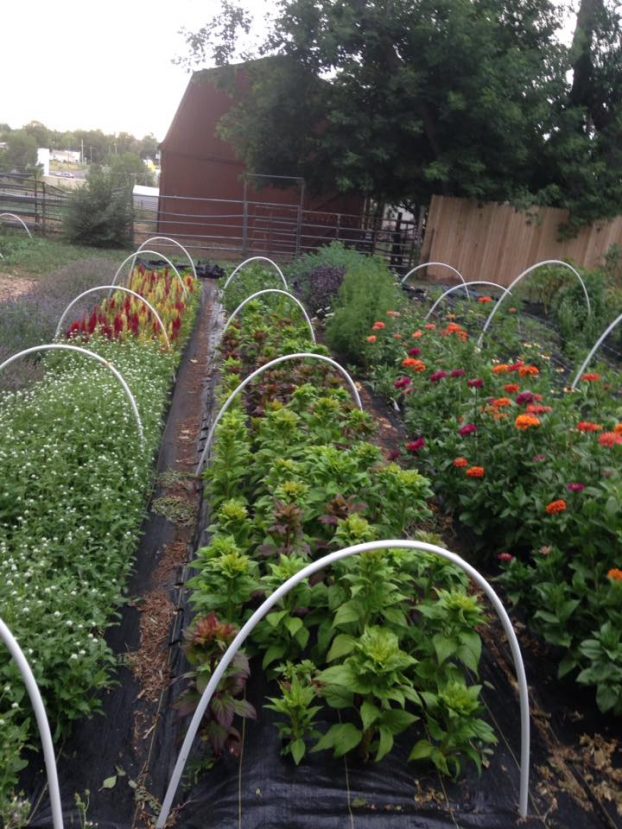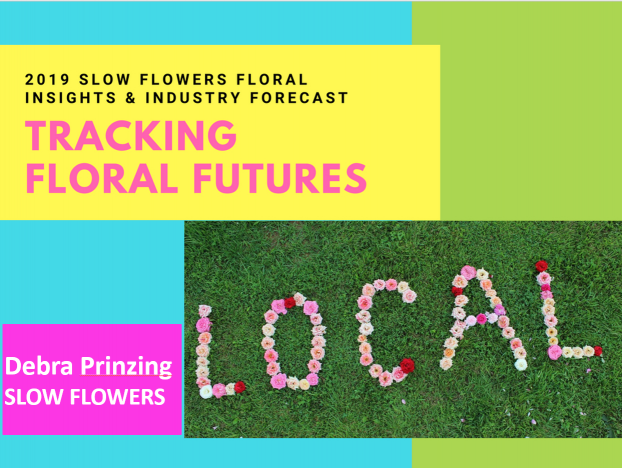Podcast: Play in new window | Download
Subscribe: Apple Podcasts | Podcast Index | RSS | More
Please meet this week’s podcast guests, Jolea Gress and Jenny Hotz of Green Earth Growers. In today’s conversation, you’ll learn about their thriving business, their flowers, their wholesale and retail operations — plus, you’ll learn how you can join all three of us at the special Slow Flowers Dinner on the Farm, taking place June 30th prior to the third annual Slow Flowers Summit in St. Paul Minnesota.
Our delicious and beautiful Flower Farm-to-Table meal will take place at Green Earth Growers, in Prior Lake, Minnesota. This established, women-owned plant nursery, vegetable and cut flower farm will wow you and I’m so pleased that Jolea and Jenny are sharing their story here today. Green Earth Growers is one of the Minnesota flower farms selling to the floral marketplace through the Twin Cities Flower Exchange wholesale hub. TCFE is our co-host of the 2019 Slow Flowers Summit.
Here’s a bit about their story:
Green Earth Growers was established in 2004, located just south of the Twin Cities. Jenny and Jolea began by growing quality plants, produce & cut flowers for local farmers, fundraisers, garden centers, landscapers, farmers markets and restaurants. Slowly, throughout the years, they have expanded their greenhouse growing space and farmland.
The women continue to be committed to growing and producing quality products with an emphasis on sustainability. All their production (plants, produce and cut flowers) are grown in accordance with the National Organic Standards. Green Earth Growers is a Certified Naturally Grown business.
In 2008, Jenny and Jolea introduced Green Earth Growers CSA, growing the program from supplying an initial 20 families with fresh weekly produce, to more than 70 CSA members today. They added a flower shares option in 2014, and say they love the personal connection with those CSA customers.
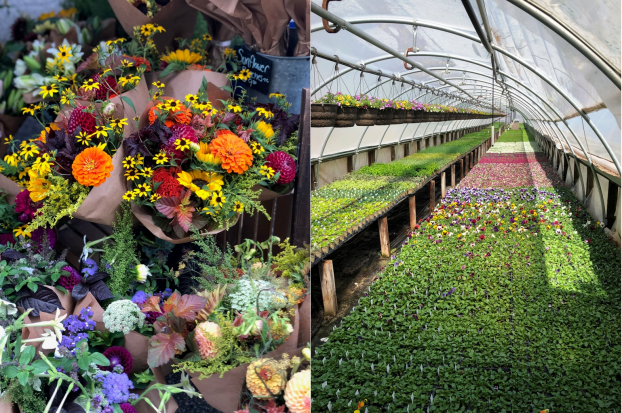
CSA Bouquets (left) and bedding plants and hanging baskets inside the Green Earth Growers’ greenhouse.
The retail center, Green Earth Gardens, opened in 2013, operating seasonally, late April to July. The center offers sustainable grown plants that are Minnesota hardy and an alternative to the plants you find at big box stores. Always experimenting with new plant varieties and growing methods, you can tell that Jenny and Jolea are passionate about flowers plants. Their passion is contagious and I can’t wait to visit them in June!
Find and follow Green Earth Growers at these social places:
Green Earth Growers on Facebook
Green Earth Growers on Instagram
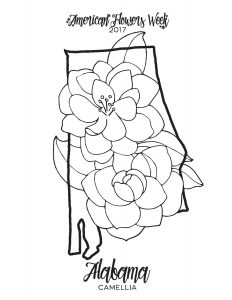
I love our Alabama state flower coloring page with a Camellia, designed by Jenny Diaz for American Flowers Week!
I want to share about our special theme of 2019 – Fifty States of Slow Flowers – which begins today, and continues through the end of 2019, for fifty consecutive weeks, I will devote a bonus mini-interview at the end of each episode to speak with a member about what’s happening in his or her state.
Averaging 10 minutes or so, we’ll give you a snapshot of floristry, flower sourcing and the unique character of the Slow Flowers scene — from Alabama to Wyoming and everywhere between. We’ll also make some important stops along the way to speak with members in the Canadian Provinces — yay!
Today’s state spotlight begins with Alabama’s Lisa Thorne of Thorne & Thistle.
Thorne and Thistle is a destination wedding and floral design studio with a passion for travel and creating meaningful, memorable moments for our couples across the southeastern states and beyond.
You can read more about Lisa in a feature I wrote for the November 2017 issue of Florists’ Review, called “A Southern Sense of Style.” Click here to read.
Find and follow Lisa Thorne at these social places:
Thorne & Thistle on Facebook
Thanks so much for joining me on this journey, seeking new and inspiring voices, people with passion, heart, commitment and expertise to share with you. I hope today’s episode gave you at least one inspiring insight or tip to apply to your floral enterprise. What you gain will be multiplied as you pay it forward and help someone else.

We have a vital and vibrant community of flower farmers and floral designers who together define the Slow Flowers Movement. As our cause gains more supporters and more passionate participants who believe in the importance of the American cut flower industry, the momentum is contagious.
I know you feel it, too. I value your support and invite you to show your thanks and with a donation to support my ongoing advocacy, education and outreach activities. You can find the donate button in the column to the right.
 The Slow Flowers Summit is six months away so please save three dates on your calendar as you plan your travel to St. Paul Minnesota: First, our bonus flower farm tours and Slow Flowers Dinner on the Farm, taking place on Sunday, June 30th; then, Monday, July 1st, where we will all gather at Paikka Event Space for day one of the Summit, followed by Tuesday, July 2nd where we will tour the Twin Cities Flower Exchange as it’s swimming in locally grown flowers.
The Slow Flowers Summit is six months away so please save three dates on your calendar as you plan your travel to St. Paul Minnesota: First, our bonus flower farm tours and Slow Flowers Dinner on the Farm, taking place on Sunday, June 30th; then, Monday, July 1st, where we will all gather at Paikka Event Space for day one of the Summit, followed by Tuesday, July 2nd where we will tour the Twin Cities Flower Exchange as it’s swimming in locally grown flowers.
I can’t wait to see you there! Ticket sales continue with a special Slow Flowers member discount at $375, so please make your way to slowflowerssummit.com to learn all about the many opportunities to join us — from flower farm tours and dinner on a flower farm to business and branding presentations to interactive and inspiring design sessions . . . all designed to serve you! Sign up to receive updates at slowflowerssummit.com.
The Slow Flowers Podcast has been downloaded more than 397,000 times by listeners like you. Thank you for listening, commenting and sharing – it means so much. Thank you all!
I’m Debra Prinzing, host and producer of the Slow Flowers Podcast.
Next week, you’re invited to join me in putting more American grown flowers on the table, one vase at a time. And If you like what you hear, please consider logging onto iTunes and posting a listener review.
The content and opinions expressed here are either mine alone or those of my guests alone, independent of any podcast sponsor or other person, company or organization.
The Slow Flowers Podcast is engineered and edited by Andrew Brenlan. Learn more about his work at soundbodymovement.com.
SPONSOR THANKS:
Florists’ Review magazine. I’m delighted to serve as Contributing Editor for Slow Flowers Journal, found in the pages of Florists’ Review. It’s the leading trade magazine in the floral industry and the only independent periodical for the retail, wholesale and supplier market. Take advantage of the special subscription offer for members of the Slow Flowers Community.
Today’s first thank you goes out Syndicate Sales, an American manufacturer of vases and accessories for the professional florist. Look for the American Flag Icon to find Syndicate’s USA-made products and join the Syndicate Stars loyalty program at syndicatesales.com.
Team Flower Conference – a professional floral event where flower lovers from all over the world gather for networking, learning, and celebration. It’s a special time for the floral industry to come together and whether you’re a farmer, designer, wholesaler, or just love flowers, you’re invited to attend as Team Flowers dreams big for the industry’s future. Head to teamflower.org/slowflowers to learn more about the 2019 conference in Waco, Texas!
Association of Specialty Cut Flower Growers. Formed in 1988, ASCFG was created to educate, unite, and support commercial cut flower growers. It mission is to help growers produce high-quality floral material, and to foster and promote the local availability of that product. Learn more at ascfg.org. And check out the web site for details about the upcoming Focus on the Business of Cut Flowers conference, set for Feb 18-19 in Denver. Seven of the experts presenting at the conference are past guests of the Slow Flowers Podcast, so you’ll recognize some familiar names and topics in the lineup!









